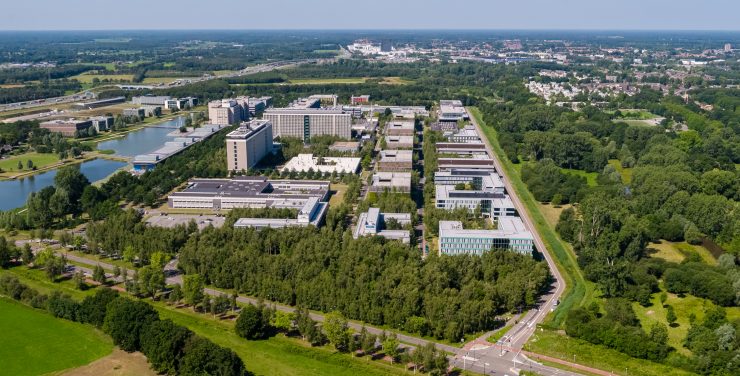The High Tech Campus in Eindhoven has announced the start of tests using autonomous drones. The campus is participating in the three-year research project ‘Flying Forward 2020’ has recently been awarded by the European Commission to a consortium of companies, government institutions and universities. Test locations will also be built in Finland (Oulu), Estonia (Tartu), Italy (Milan) and Spain (Zaragoza).
A press release issued by High Tech Campus said: “In this project we will be testing, among other things, the delivery of parcels, mail and meals”, says Paul van Son, Innovation Manager at the Campus. “But the drones can also play an important role in securing our site and monitoring buildings and sustainability. A number of our ambitions come together nicely in this project. We want to lead the way in sustainability and digitization and we want to offer a testbed for socially relevant innovations with our site.”
The project stems from the desire of the European Union to establish standards and regulations for the use of (autonomous) drones in urban areas. Now that almost every consumer can purchase a drone, there is a danger of nuisance, privacy issues and accidents. But the use of autonomous drones also offers opportunities for the smart city of tomorrow. These issues are being investigated in the Flying Forward 2020 living labs.
A number of use cases are being tested with this system. Van Son: “For us, there are two major issues that we are investigating in this project. The first is how we can use drones to monitor the Campus autonomously, for example on safety and sustainability aspects. The other is last mile delivery on Campus, think of packages and meals. ”
To enable the deployment of autonomous drones, a digital 3D infrastructure (digital twin) of the High Tech Campus will be developed. “This allows us to manage our airspace in real time. In this infrastructure, for example, we record where drones are allowed to fly and where not, but the drones and algorithms are also given a digital identity so that we know who is responsible for what.”
The technical coordination of the project is in the hands of Serendipity. Jonas Onland, Managing Partner of Serendipity and initiator of Flying Forward: “In the digital twin all data comes together: how busy is the Campus, what is the condition of the buildings, what is the biodiversity of the site? It enables the High Tech Campus to proactively manage the campus, plan scenarios and predict what maintenance will be required in the future. To visualize this, we use techniques such as VR and AR.”
When asked whether it will soon be crawling with drones above the Campus, Van Son has a clear answer: “No. This project is going to investigate how drones can improve the quality of our lives. The system enables us to take full control, so that we can safely test and research how drones can be a positive addition to our society in the future.” The first tests with the drones on the High Tech Campus are expected at the end of 2021.
The international consortium ‘Flying Forward 2020’ is coordinated by Brainport Development and consists of public and private organizations, universities and international multidisciplinary teams of experts such as Digie, EURO USC Italia, Nalantis, Serendipity, Maastricht University and VERSES. It is supported by several major institutions, including the European Space Agency (ESA), NXP, VDL, Microsoft, Nokia and LUMO Labs.
For more information visit:




